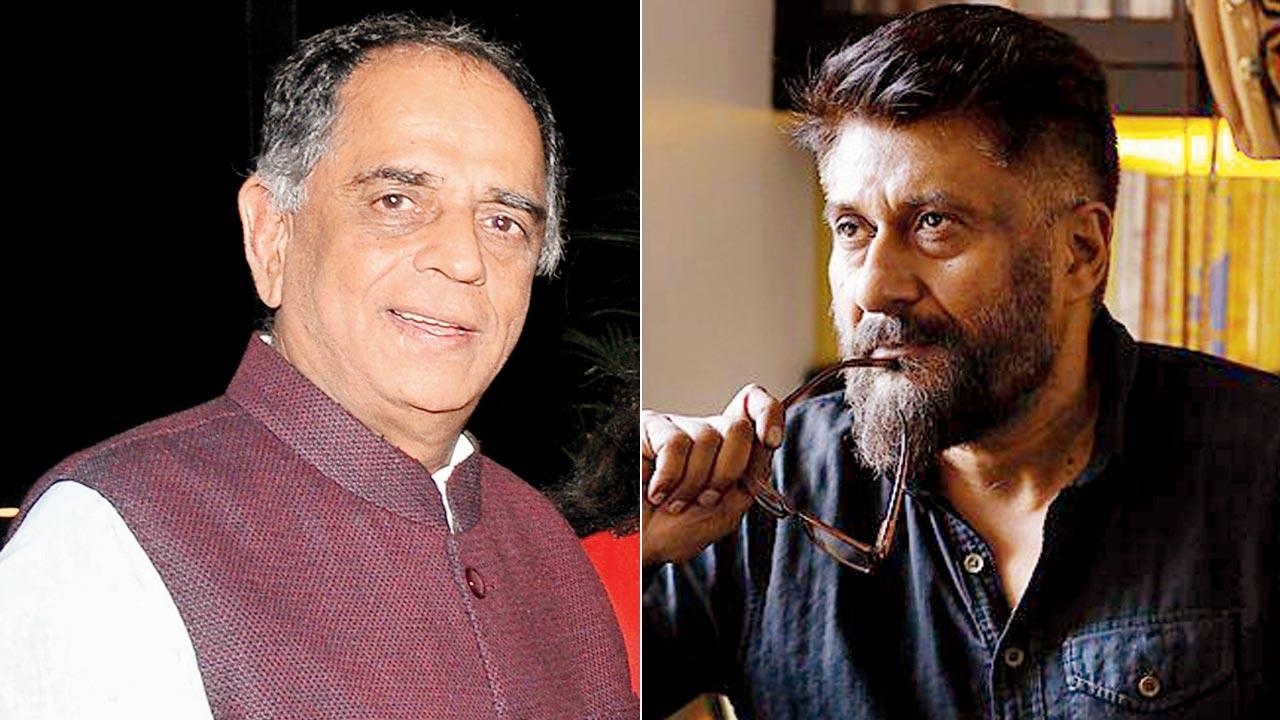Former CBFC chief Pahlaj Nihalani ironically opposes move that gives board complete power over film certification; current board member Vivek Agnihotri backs FCAT dissolution.

Pahlaj Nihalani, former CBFC board and Vivek Agnihotri, current CBFC member
The reported abolition of the The Film Certification Appellate Tribunal (FCAT), the statutory body constituted in 1983 to deal with filmmaker’s grievances, has invited mixed reactions. Usually dealing with cases against decisions of the Central Board of Film Certification (CBFC), the body enabled several films to see the light of day. Current member and filmmaker Vivek Agnihotri, however, is in favour of the move.
“Now, CBFC will have more control, and will be more responsible,” says Agnihotri, adding that he was always against the decision of making the Board a body whose decisions could be challenged.
“In the past, there was a lot of ping-pong, as a film went back and forth from the Tribunal to the Review Committee. Many agencies, departments and tribunals today, are redundant. If CBFC can be competed with, then what’s the point? I always wondered why we needed the FCAT. If [a filmmaker] has a problem with the board’s decision, he can go to court,” he says, adding that the industry has too many agencies, which, when not exploited to their potential, leaves the industry with “buildings, offices, and infrastructure that is not required.”
In a bid to make a case, Agnihotri highlights that following the appointment of Prasoon Joshi in place of the controversial Pahlaj Nihalani, “there has been no controversy” associated with their decisions. “In fact, we passed Sanjay Leela Bhansali’s controversial film Padmaavat,” he says, matter-of-factly.
Nihalani, whose reign as chief of the Board was mired in controversy given his tendency to demand for arguably unnecessary cuts, is, surprisingly, not in favour of the decision. “FCAT was an option for filmmakers to get justice, and that layer has been abolished. Dropping the Tribunal is risky, expensive, and time-consuming because a filmmaker will now need to pay an advocate, and wait for the decision of the court. It makes the CBFC the supreme power. If somebody wants to harass a filmmaker, then the option of appealing to FCAT [at a nominal fee], is no longer available,” says Nihalani, adding that should the government perceive the tribunal as a redundant body, then the CBFC’s entity too should be questioned. “If they feel OTT platforms and television don’t require certification and can function through self-regulatory bodies, why not have the same process for movies too? Or, follow in the footsteps of [American films], where a film’s suitability is decided upon by a self-regulatory body comprising industry members.”
The FCAT was constituted in 1983
 Subscribe today by clicking the link and stay updated with the latest news!" Click here!
Subscribe today by clicking the link and stay updated with the latest news!" Click here!









